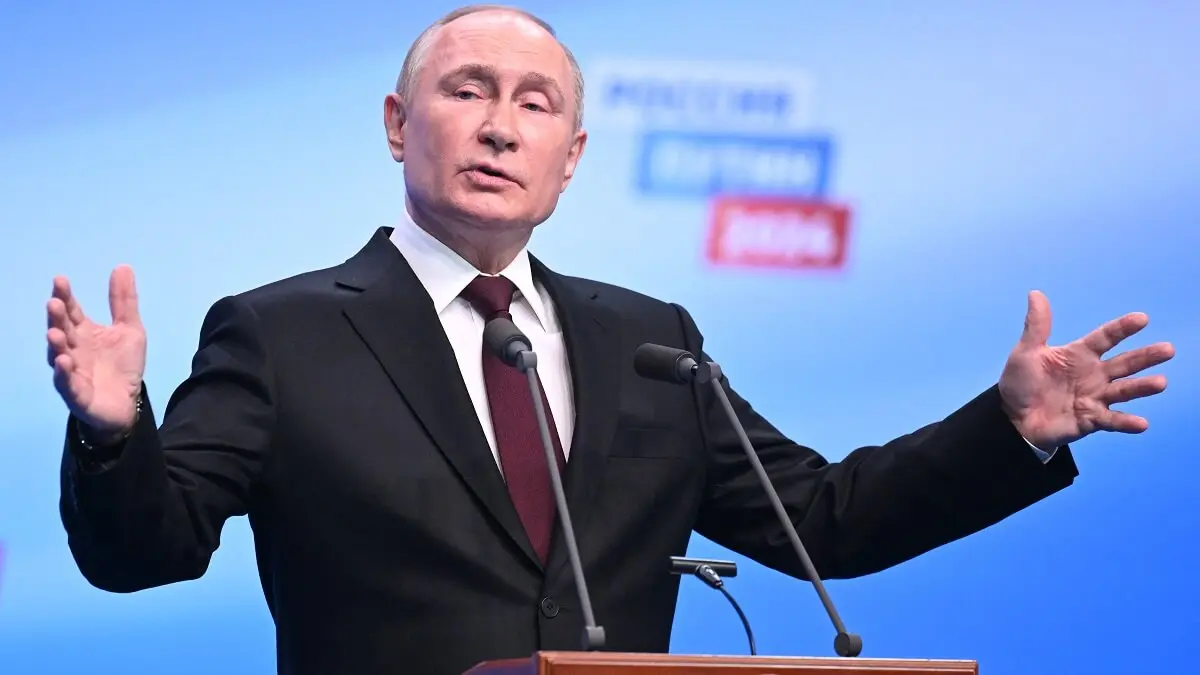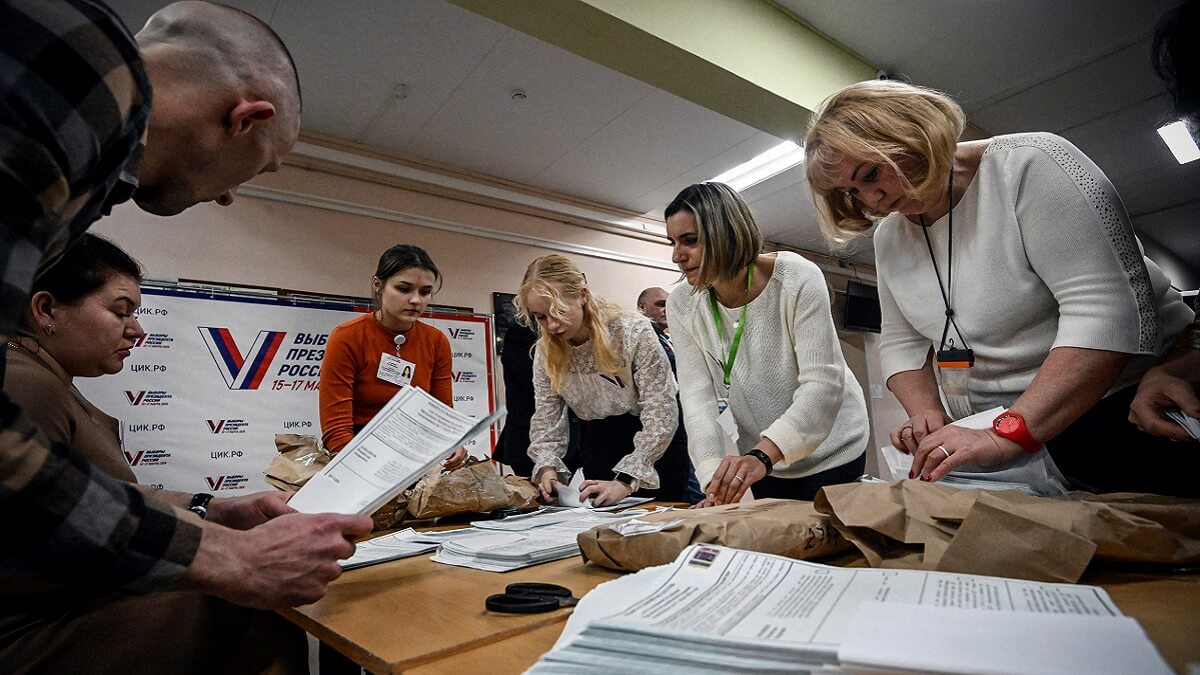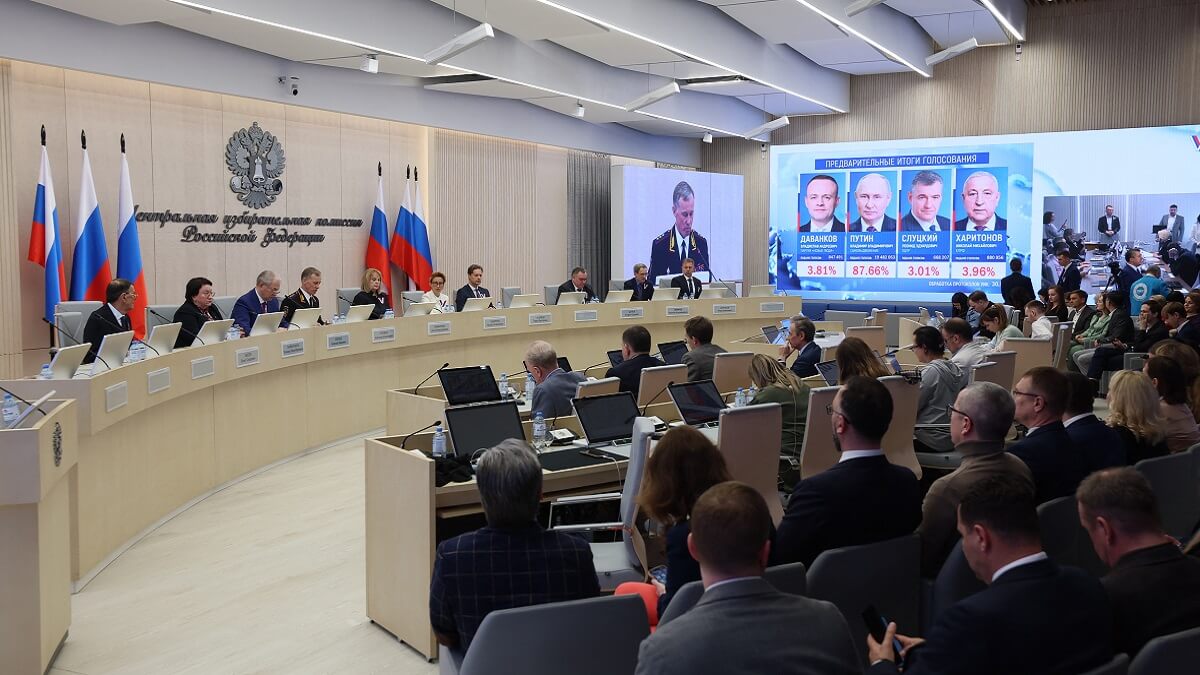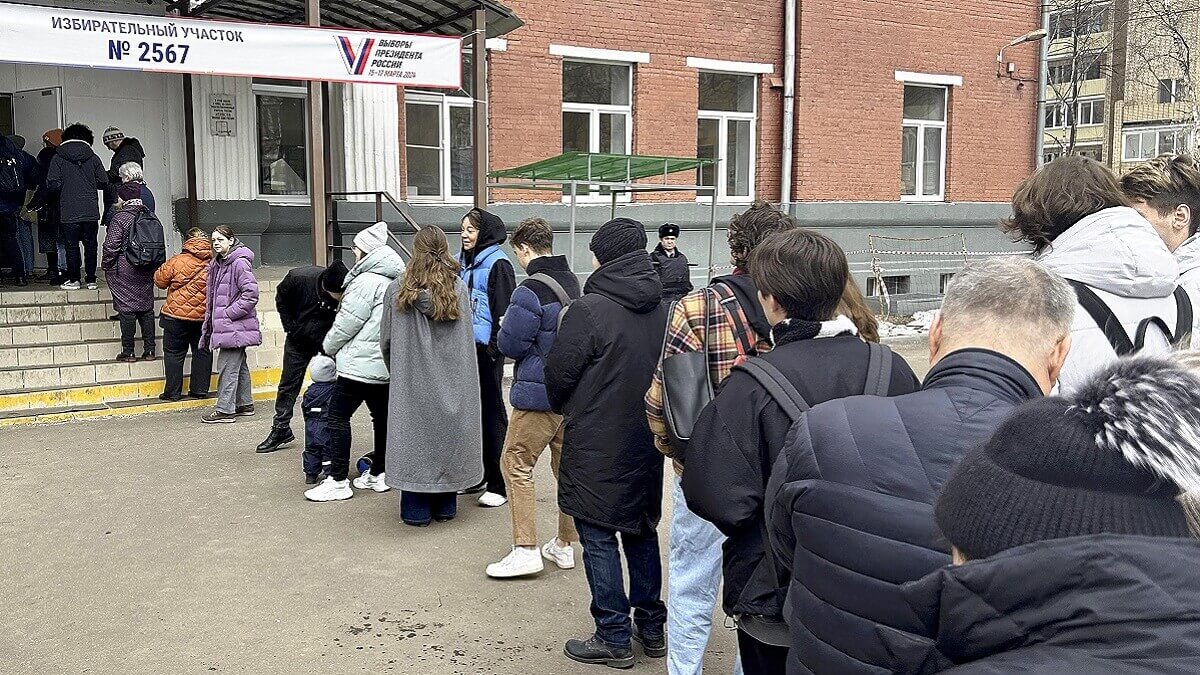Putin sweeps to 87% of the vote in an election with no real opposition

Vladimir Putin has once again won an election that, as usual in Russia, was marked by numerous irregularities. The Russian leader obtained 87% of the votes in the elections, with a turnout of 74.22%, a much higher figure than in 2018, when there was a turnout of 67%.
- The most comfortable victory since the fall of the Soviet Union
- A show of support for the invasion of Ukraine
- Russian crackdown does not completely prevent protests against election fraud
The most comfortable victory since the fall of the Soviet Union
In addition to the many suspicions about the neutrality of the electoral process, these elections have left several unique facts. Putin has achieved the most resounding victory in the entire post-Soviet era. It also had a lot to do with the fact that it was the occasion in which he had the fewest rivals to revalidate his candidacy for the presidency, which, on the other hand, does not have much influence in an election whose result is decided before the first voter places his ballot in the ballot box.

While Vladimir Putin speaks of his country as "a united family" that "will carry out all its plans and achieve all its goals", Russia's electoral process has been sharply criticised from many corners of the world. A US State Department spokesman said that "they (the elections) are obviously not free and fair given that Putin has imprisoned political opponents and prevented others from running against him".
And those who were able to run in the elections, even if only in a token capacity, were three candidates that some experts describe as being "tailor-made" for Putin. With very low popularity ratings and no political experience, the communist candidate, Nikolai Jaritonov, won 3.8% of the vote, the 'liberal' Vyacheslav Davankov, 3.73%, and the ultra-nationalist Leonid Slutsky managed 2.96%.

A show of support for the invasion of Ukraine
At least that is the Kremlin's idea. To use these elections as a gauge of support for Putin's invasive policy towards its Ukrainian neighbour. And it is the first thing that the endorsed Russian leader referred to around midnight, after making his expected victory official amid shouts of "Putin, Putin". He assured that "no one can defeat Russia" and warned Kiev: "We will not leave you alone".
For Putin, this victory is a show of support for the invasion of Ukraine. After just over two years of war, the Russian president remains convinced that he took the right path and now, at least from his point of view, the population has shown its support for this idea. What he wants is to "solve all tasks to strengthen the army", to continue the "daily progress" that the Russian army is making on the battlefield.

The newly re-elected president stressed that Russia "defends its path with weapons in hand". He said that the high turnout was a great success and that it was largely due to the "dramatic nature of the situation". However, he did not want to forget those Russians loyal to Ukraine who are on the borders, about whom he said "we will treat traitors as if they were in a war zone".
Russian crackdown does not completely prevent protests against election fraud
The Russian authorities have tried to prevent any kind of protest against the opacity of the entire electoral process, although they have not succeeded in doing so completely. The "Noon Against Putin" initiative managed to gather a large number of people who agreed to go to the polling stations at the same time as a sign of discontent with the Russian leader.

Some people decided to go further by openly complaining about Putin's policies at the polling stations or by introducing invalid ballot papers with the messages "No to war" or "Navalni", referring to the recently assassinated - not according to the Kremlin's official version, which claims natural causes - opponent of Vladimir Putin. These actions resulted in 75 people being arrested in 17 cities across the country, including some who went to Alexei Navalni's grave to deposit ballot papers there.
Neither long queues at polling stations, especially those located in central Moscow, nor criticism of blatant fraud prevented Vladimir Putin from celebrating his resounding victory. Having overcome what was, to all intents and purposes, a formality for the president, Putin will now turn his attention to the invasion of Ukraine, where the situation seems to have run aground with increasing tension due to the words of Emmanuel Macron, who is not allowing the rest of Europe to breathe easy by leaving the door open to sending troops to Ukraine.








